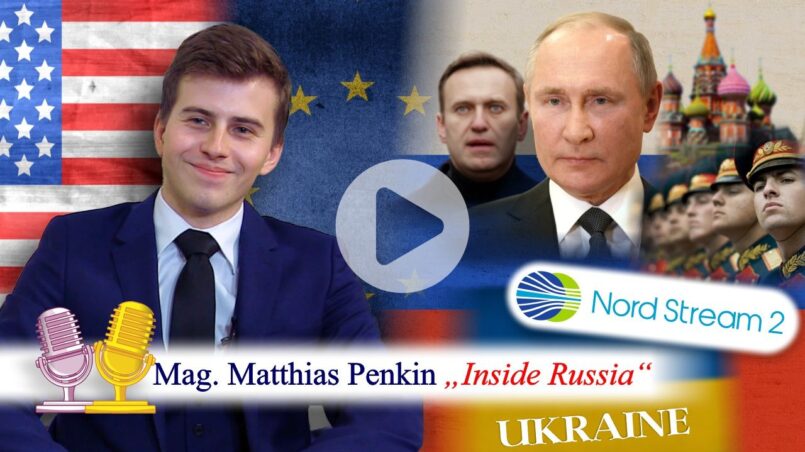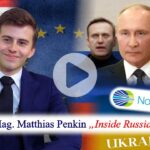Inside Russia – Mag. Matthias Penkin

Russian born PhD candidate in political science Mag. Matthias Penkin is our guest in this episode of “Darüber sollten wir reden“. He is currently studying in Innsbruck at the department of political science and recently started to work in Moscow. Our own Mag. Christian Janisch had a chance to speak with him about foreign and domestic affairs Russia is dealing with at the moment.
Being half Russian, half German, Mag. Matthias Penkin was raised in St. Petersburg and studied there, before he attended the Diplomatic Academy in Vienna, where he met his mentor Univ. Prof. Dr. Gerhard Mangott, with whom he started the video project “GM Analytics”
For Mag. Penkin it is obvious that the constitutional referendum, which took place in mid 2020 and which basically allows Russian President Vladimir Putin to stay in power until 2036, is clearly an infringement of the constitution. Whether or not Putin really will be President until then is up for debate, but with this referendum Putins ruling party, United Russia, secured its power for a long term. For President Putin himself it is important not to become the target of a possible prosecution when he retires.
The Russian opposition – within and outside of parliament – is very fragmented and thus powerless, because these opposition parties are focused on more or less charismatic leaders and not on certain political issues, which is a typical error of post-authoritarian countries.
The most influential politician outside Putins circle of power was Alexej Nawalny, until he was locked up. The accusation that Mr. Navalny is a western spy is most likely a typical Kremlin propaganda plot, as the Russian FSB never showed any proof for that accusation; though it might very well be that Nawalny got information from western secret services for his famous documentary about Putins system of corruption. Western media portrays Nawalny as the hope for Russia, but if you analyze his political ideas in the past it becomes clear that he supported some very far right, nationalistic positions. When Navalny realized that these ideas didn’t attract many voters, he changed his agenda, which is typical for Russian politicians, who change political parties and agendas more often than their western counterparts.
The Ukraine conflict is now back in the news mainly because Russia held a military exercise along the Ukrainian border. Is President Putin flexing his muscle or does the Ukraine – restrengthened by Bidens support – try to stir things up? Mag. Penkin explains that the Kremlin welcomes an ongoing simmering conflict in Ukraine because Russia can use it as leverage against Ukaine and the West.
Mag. Penkin reminds us that when US President Joe Biden decided to withdraw US warships from the black sea, Russia ended it´s troops exercise near the Ukrainian border.
A few weeks after Joe Biden became US President he was asked by ABC anchor George Stephanopoulos if he thinks Russian President Putin is a killer and Biden replied with “Yes”. Mag. Penkin analyzes why this was a major diplomatic blunder by Biden, mostly because it helped Russian president Putin to portray himself as a victim of verbal abuse by not retialiting with the same harsh rhetoric aganst Biden.
Asked about possible interference by Russia into the US elections in 2016 and 2020 Mag. Penkin replies that this most probably happenend, but that the scale of this interference is well overrated in western media – which fosters Putins image as a possibly powerful foe.
Further topics of this interview are the relations between China and Russia, the North Stream 2 pipeline and the German elections, Russian vaccine Sputnik V and the Coronavirus situation in Russia in general and the ongoing dependency of the Russian economy on raw materials.
Credits
| Image | Title | Author | License |
|---|---|---|---|
 |
Mag. Matthias Penkin | Wolfgang Müller | CC BY SA 4.0 |
